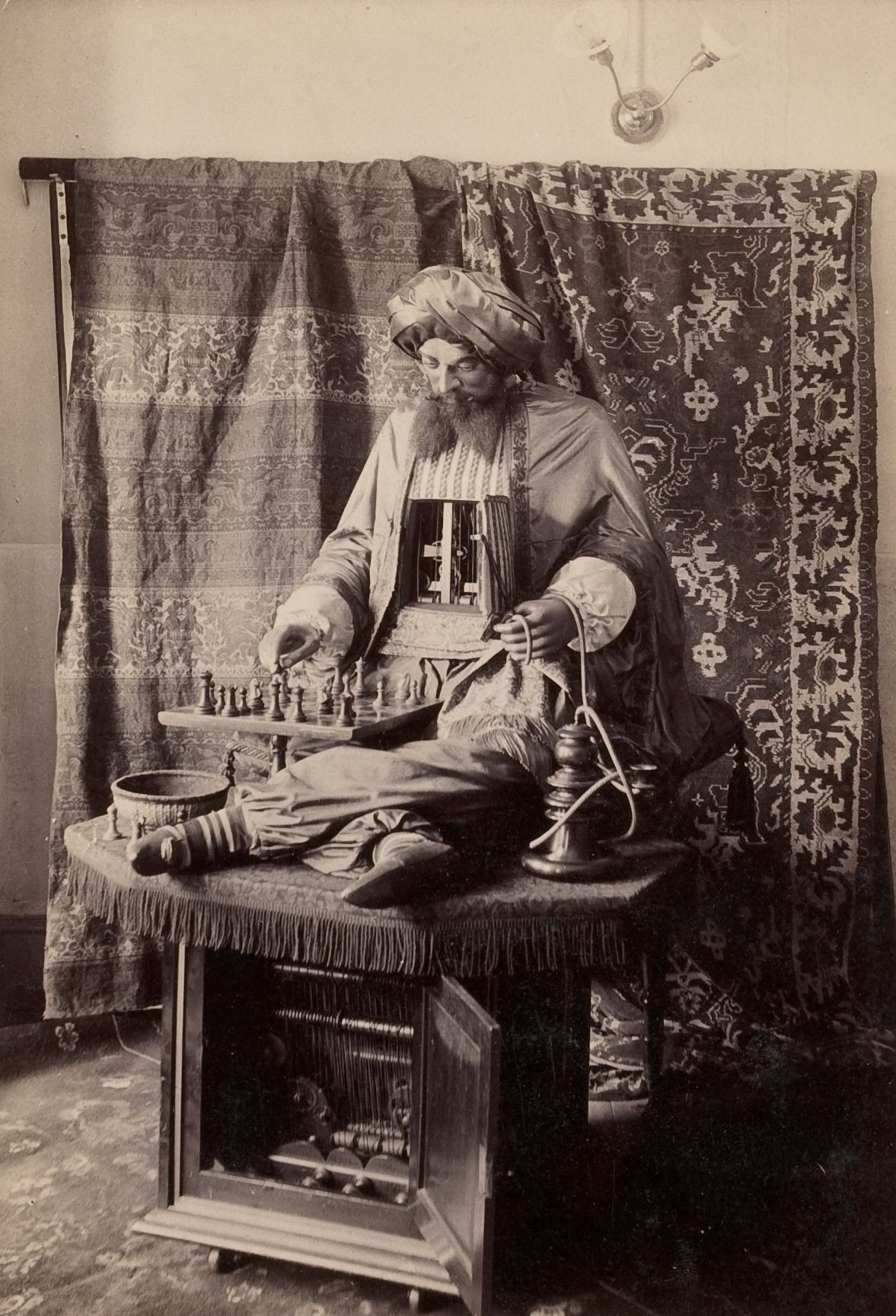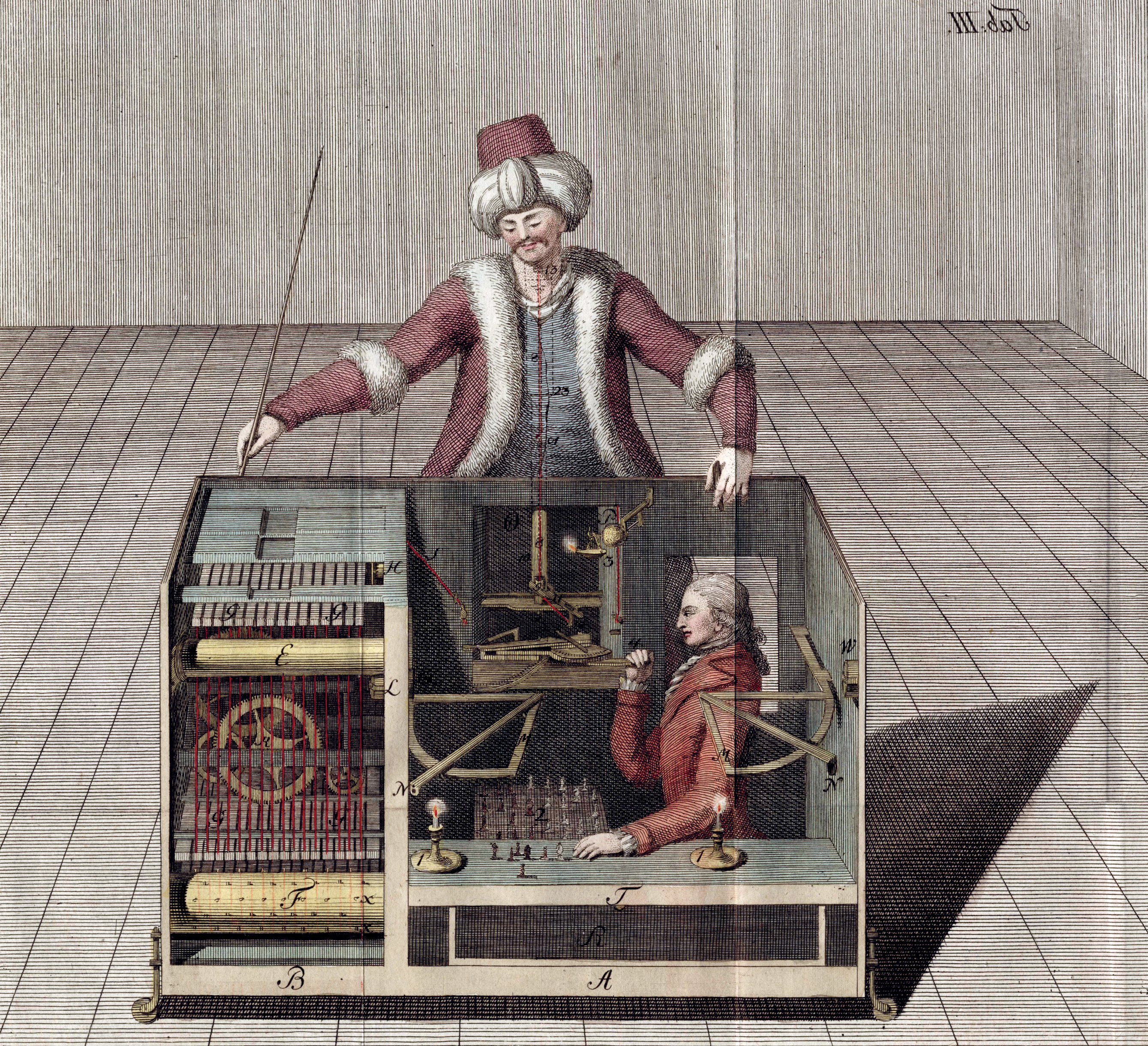|
Jan Taubenhaus
Jean (Jan) Taubenhaus (14 December 1850, in Warsaw – 14 September 1919, in Paris) was a Polish–born French chess master. Biography Taubenhaus was a foremost Warsaw chess player in late 1870s. In 1880, he settled in Paris. In the 4th international Congress of the German Chess Association (DSB) at Hamburg in July 1885, he took 14th place. His best achievement was the London tournament of 1886, where he tied for 3rd-4th places together with Isidor Gunsberg, after Joseph Henry Blackburne and Amos Burn, in strong London competition. He had significant victories over Blackburne, unchallenged leader of English chess, and Gunsberg, Steinitz's opponent in later match for the world championship. In 1886, he took 6th at Nottingham. In 1887, he took 19th at Frankfurt (5th DSB Congress). In 1888, he took 8th at Bradford. In 1889, he tied for 12th–13th at New York (6th US Congress). In 1890, he took 10th at Manchester (6th BCA Congress). Living in Paris, Taubenhaus gave lessons at the C ... [...More Info...] [...Related Items...] OR: [Wikipedia] [Google] [Baidu] |
Andrés Clemente Vázquez
{{Disambiguation, geo ...
Andres or Andrés may refer to: *Andres, Illinois, an unincorporated community in Will County, Illinois, US *Andres, Pas-de-Calais, a commune in Pas-de-Calais, France *Andres (name) *Hurricane Andres * "Andres" (song), a 1994 song by L7 See also * * *San Andrés (other), various places with the Spanish name of Saint Andrew *Anders (other) *Andre (other) *Andreas (other) Andreas is both a surname and a given name. Notable people with the name include: * Andreas (comics) (b. 1951), pen name for Andreas Martens, comic artist * Andreas (parish), a parish in the Sheading of Ayre, Isle of Man ** Andreas, Isle of Man ... [...More Info...] [...Related Items...] OR: [Wikipedia] [Google] [Baidu] |
19th-century French Sportsmen
The 19th century began on 1 January 1801 (represented by the Roman numerals MDCCCI), and ended on 31 December 1900 (MCM). It was the 9th century of the 2nd millennium. It was characterized by vast social upheaval. Slavery was Abolitionism, abolished in much of Europe and the Americas. The First Industrial Revolution, though it began in the late 18th century, expanded beyond its British homeland for the first time during the 19th century, particularly remaking the economies and societies of the Low Countries, France, the Rhineland, Northern Italy, and the Northeastern United States. A few decades later, the Second Industrial Revolution led to ever more massive urbanization and much higher levels of productivity, profit, and prosperity, a pattern that continued into the 20th century. The Catholic Church, in response to the growing influence and power of modernism, secularism and materialism, formed the First Vatican Council in the late 19th century to deal with such problems an ... [...More Info...] [...Related Items...] OR: [Wikipedia] [Google] [Baidu] |
1919 Deaths
Events January * January 1 ** The Czechoslovak Legions occupy much of the self-proclaimed "free city" of Bratislava, Pressburg (later Bratislava), enforcing its incorporation into the new republic of Czechoslovakia. ** HMY Iolaire, HMY ''Iolaire'' sinks off the coast of the Hebrides; 201 people, mostly servicemen returning home to Lewis and Harris, are killed. * January 2–January 22, 22 – Russian Civil War: The Red Army's Caspian-Caucasian Front begins the Northern Caucasus Operation (1918–1919), Northern Caucasus Operation against the White Army, but fails to make progress. * January 3 – The Faisal–Weizmann Agreement is signed by Faisal I of Iraq, Emir Faisal (representing the Arab Kingdom of Hejaz) and Zionism, Zionist leader Chaim Weizmann, for Arab–Jewish cooperation in the development of a Jewish homeland in Palestine (region), Palestine, and an Arab nation in a large part of the Middle East. * January 5 – In Germany: ** Spartacist uprising in ... [...More Info...] [...Related Items...] OR: [Wikipedia] [Google] [Baidu] |
1850 Births
Events January–March * January 29 – Henry Clay introduces the Compromise of 1850 to the United States Congress. * January 31 – The University of Rochester is founded in Rochester, New York. * January – Sacramento floods. * February 28 – The University of Utah opens in Salt Lake City. * March 5 – The Britannia Bridge opens over the Menai Strait in Wales. * March 7 – United States Senator Daniel Webster gives his "Seventh of March" speech, in which he endorses the Compromise of 1850, in order to prevent a possible civil war. * March 16 – Nathaniel Hawthorne's historical novel '' The Scarlet Letter'' is published in Boston, Massachusetts. * March 19 – American Express is founded by Henry Wells and William Fargo. * March 31 – The paddle steamer , bound from Cork to London, is wrecked in the English Channel with the loss of all 250 on board. April–June * April 4 – Los Angeles is incorp ... [...More Info...] [...Related Items...] OR: [Wikipedia] [Google] [Baidu] |
Allgaier Gambit
The King's Gambit is a chess opening that begins with the moves: :1. e4 e5 :2. f4 White offers a pawn to divert the black e-pawn. If Black accepts the gambit, White may play d4 and Bxf4, regaining the gambit pawn with domination, or direct their forces against the weak square f7 with moves such as Nf3, Bc4, 0-0, and g3. A downside to the King's Gambit is that it weakens White's king's position, exposing it to the latent threat of ...Qh4+ (or ), which may force White to give up castling rights. The King's Gambit is one of the oldest documented openings, appearing in the earliest of chess books, Luis Ramírez de Lucena's ''Repetición de Amores y Arte de Ajedrez'' (1497). It was examined by the 17th-century Italian chess player Giulio Cesare Polerio. The King's Gambit was one of the most popular openings until the late 19th century, when improvements in defensive technique led to its decline in popularity. It is infrequently seen at master level today, as Black has several m ... [...More Info...] [...Related Items...] OR: [Wikipedia] [Google] [Baidu] |
Leicester Square
Leicester Square ( ) is a pedestrianised town square, square in the West End of London, England, and is the centre of London's entertainment district. It was laid out in 1670 as Leicester Fields, which was named after the recently built Leicester House, Westminster, Leicester House, itself named after Robert Sidney, 2nd Earl of Leicester. The square was originally a gentrification, gentrified residential area, with tenants including Frederick, Prince of Wales and the artists William Hogarth and Joshua Reynolds. It became more down-market in the late 18th century as Leicester House was demolished and retail developments took place, becoming a centre for entertainment. Major theatres were built in the 19th century, which were converted to cinemas towards the middle of the next. Leicester Square is the location of nationally significant cinemas such as the Odeon Luxe Leicester Square and Empire, Leicester Square, which are often used for film premieres. The nearby Prince Charles C ... [...More Info...] [...Related Items...] OR: [Wikipedia] [Google] [Baidu] |
Ajeeb
Ajeeb was a chess-playing "automaton", created by Charles Hooper (a cabinet maker), first presented at the Royal Polytechnical Institute in 1868. A piece of faux mechanical technology (while presented as entirely automated, it in fact concealed a strong human chess player inside), it drew scores of thousands of spectators to its games, the opponents for which included Harry Houdini, Theodore Roosevelt, and O. Henry. Ajeeb's name was derived from the Arabic word () meaning "wonderful, marvelous." The genius behind the device were players such as Harry Nelson Pillsbury (1898–1904), Albert Beauregard Hodges, Constant Ferdinand Burille, Charles Moehle, and Charles Francis Barker. Moehle, for instance, gained further popularity playing chess in the United States, where the contraption was also exhibited in the Eden Museum in 1885 and Coney Island in 1915. Solomon Lipschuetz was one of Ajeeb's notable opponents during this period. The machine also played checkers, matching aga ... [...More Info...] [...Related Items...] OR: [Wikipedia] [Google] [Baidu] |
Mechanical Turk
The Mechanical Turk, also known as the Automaton Chess Player (, ; ), or simply The Turk, was a fraudulent chess-playing Chess engine, machine constructed in 1770, which appeared to be able to play a strong game of chess against a human opponent. For 84 years, it was exhibited on tours by various owners as an automaton. The machine survived and continued giving occasional exhibitions until 1854, when a fire swept through the museum where it was kept, destroying the machine. Afterwards, articles were published by a son of the machine's owner revealing its secrets to the public: that it was an elaborate hoax, suspected by some, but never proven in public while it still existed.See Schaffer, Simon (1999), "Enlightened Automata", in Clark et al. (Eds), ''The Sciences in Enlightened Europe'', Chicago and London, The University of Chicago Press, pp. 126–165. Constructed and unveiled in 1770 by Wolfgang von Kempelen (1734–1804) to impress Empress Maria Theresa of Austria, the mech ... [...More Info...] [...Related Items...] OR: [Wikipedia] [Google] [Baidu] |
Charles Godfrey Gumpel
Charles is a masculine given name predominantly found in English and French speaking countries. It is from the French form ''Charles'' of the Proto-Germanic name (in runic alphabet) or ''*karilaz'' (in Latin alphabet), whose meaning was "free man". The Old English descendant of this word was '' Ċearl'' or ''Ċeorl'', as the name of King Cearl of Mercia, that disappeared after the Norman conquest of England. The name was notably borne by Charlemagne (Charles the Great), and was at the time Latinized as ''Karolus'' (as in ''Vita Karoli Magni''), later also as '' Carolus''. Etymology The name's etymology is a Common Germanic noun ''*karilaz'' meaning "free man", which survives in English as churl (James (< Latin ''-us'', see Spanish/ Portuguese ''Carlos''). According to Julius Pokorny, the historical linguist and Indo-European studies, Indo-Europeanist, the root meaning of Charles is "old man", from Proto-Indo-European language, Indo-European *wikt:Appendix:Proto-Indo-E ... [...More Info...] [...Related Items...] OR: [Wikipedia] [Google] [Baidu] |





